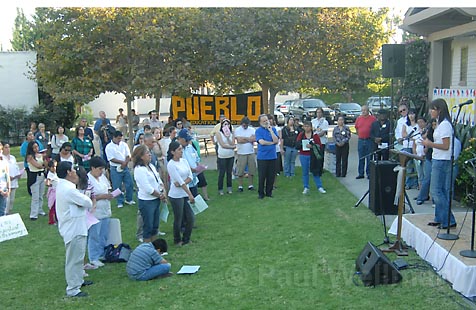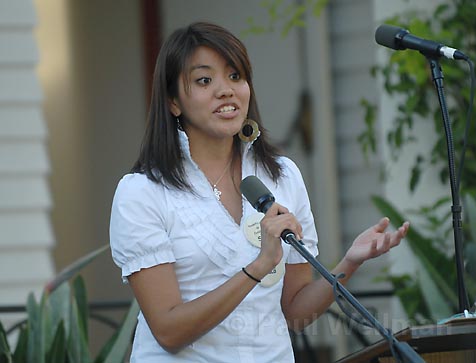Immigration Crackdown?
Activists, Business Owners Await "No Match" Ruling

As the country awaits an October 1 hearing in which a U.S. district judge is expected to decide the legality of a new federal Department of Homeland Security (DHS) rule that could force businesses to fire employees whose documents don’t match federal records, immigrant advocates in Santa Barbara are focused on keeping immigrant families united.
After the AFL-CIO, American Civil Liberties Union, and the National Immigration Law Center filed a lawsuit last month, a federal judge in San Francisco put a temporary halt to enforcement of the new DHS directive that employers terminate employees about whom they received “no match” letters-missives sent to employers stating that the identification documents of those who work for them do not match Social Security Administration (SSA) records. The judge agreed with the lawsuit’s claim that the letters imposed “burdensome obligations” on employers and that the “misguided rule violated the law and workers’ rights,” according to a statement from the ACLU.
Some posit that the rule oversteps the boundaries of the SSA’s intended purpose. The SSA database contains roughly 17.8 million cases with discrepancies, according to an estimate from the SSA Office of the Inspector General. Of those, an estimated 12.7 million arise from clerical errors, name changes, or multiple surnames in records belonging to native U.S. citizens. Each year, between 8 million and 9 million people pay taxes using the wrong Social Security number.

Currently, businesses aren’t required to respond to “no match” letters. But the new DHS rule would give employers 90 days to resolve any errors. If neither the employer nor the employee can fix the problem, the business would be required to fire the employee or face fines. According to the SSA, 138,447 letters were to be sent to businesses around the country, including 35,474 to California businesses.
The letters would have a devastating effect on agriculture in California, according to a statement from Western Growers Association, an Irvine-based trade group representing growers, packers, and shippers who move 90 percent of the produce grown in California. People have already lost jobs in the agricultural industry in Santa Barbara County as a result of the January freeze, said Aidin Castillo-a South County organizer with PUEBLO (People United for Economic Justice Building Leadership through Organizing)-and even more would lose agricultural jobs should this rule be enforced.
The new rule is just the latest in an increase of enforcement by the Bush administration, said Dr. Eileen Boris, the chair of UCSB’s women’s studies department. President Bush’s proposed immigration reform bill had measures to toughen border security and workplace enforcement, legalize roughly 12 million illegal immigrants, and make provisions for a temporary worker program. But the bill was shot down by the U.S. Senate in June, and-consequently, Boris said-the administration has now been stepping up raids and deportation of illegal immigrants. Alfonso Martinez-Fonts, the assistant secretary for the DHS Private Sector Office, was in town on September 13 to talk about national preparedness, but he deflected questions about the new rule. “While the whole ‘no match’ situation is in litigation, I’m not in a position to comment on it,” he said.
At a vigil sponsored by PUEBLO last week on the lawn outside Our Lady of Sorrows Church, roughly 100 people gathered in opposition to the new rule and called for an immigration policy that would keep families together. Those attending the vigil-which coincided with dozens around the country-heard testimony from teens who had been separated from their families. The 14th Amendment to the U.S. Constitution declares anyone born on U.S. soil an automatic citizen of the country. Consequently, when parents-like Elvina Arellano, who was deported from Chicago last month-are sent out of the country, citizen children like Arellano’s 8-year-old son are left in the U.S. without them. “Let us be reminded that policies are currently being formed,” Castillo of PUEBLO told the crowd. “We need to be united.”
Critics insist that illegal immigrants have only themselves to blame, but Boris offered a different perspective: “It’s the logical outcome of a long struggle of people being invited here for their labor but not being treated as human beings,” she said. “Never let anyone separate you from your families,” exhorted former city councilmember Babatunde Folayemi, who reminded the crowd that 40 years ago, blacks were also fighting for justice and freedom in the U.S.



